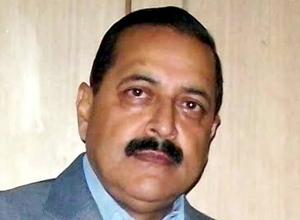New Delhi, Aug 4: English marks in CSAT-II will not be included for gradation or merit and 2011 candidates may get a second chance to appear for the test next year, government announced in Lok Sabha today seeking to defuse the UPSC row that has seen the aspirants on warpath.
"Government is of the opinion that in the Civil Services Preliminary examination, Paper-II, the marks of the question section on 'English Language comprehension skills' should not be included for gradation or merit," MoS Personnel Jitendra Singh said seeking to mollify the agitating candidates.
In a brief statement Singh said, "Candidates, who appeared in Civil Services Examination 2011, may be given one more attempt in 2015."
Parliament has witnessed repeated uproar and several adjournments in the past few days over the issue. Immediately after the statement, B Mahtab (BJD) and Dharmendra Yadav (SP) stood up demanding clarification whether Civil Services Aptitude Test (CSAT) has been done away with.
However, the Minister stood up to say that he has said whatever he wanted to.
Earlier, opposition had demanded in the Rajya Sabha a definite time-frame from government to resolve the issue and served a privilege notice, forcing adjournment of the House.
Raising the issue during Zero Hour, Sharad Yadav (JD-U) accused the government of "going back on its promise" of resolving the issue expeditiously.
The students have been demanding that the pattern of CSAT be changed to give level-playing field to those coming from rural areas.
There are two compulsory papers of 200 marks each in the preliminary examination. These papers are also known as CSAT-I and CSAT-II.
The CSAT-II paper carries questions on comprehension, inter-personal skills including communication skills, logical reasoning and analytical ability, decision-making and problem- solving, general mental ability, basic numeracy, and English language comprehension skills (of Class X level).
Students have been objecting to the level of aptitude and English language questions being asked in the examination claiming they are much above the standard prescribed for the examination. The civil services examination is conducted by the Union Public Service Commission (UPSC) in three stages--preliminary, main, and interview--to choose candidates for Indian Administrative Service (IAS), Indian Foreign Service (IFS) and Indian Police Service (IPS), among others.






Comments
Add new comment